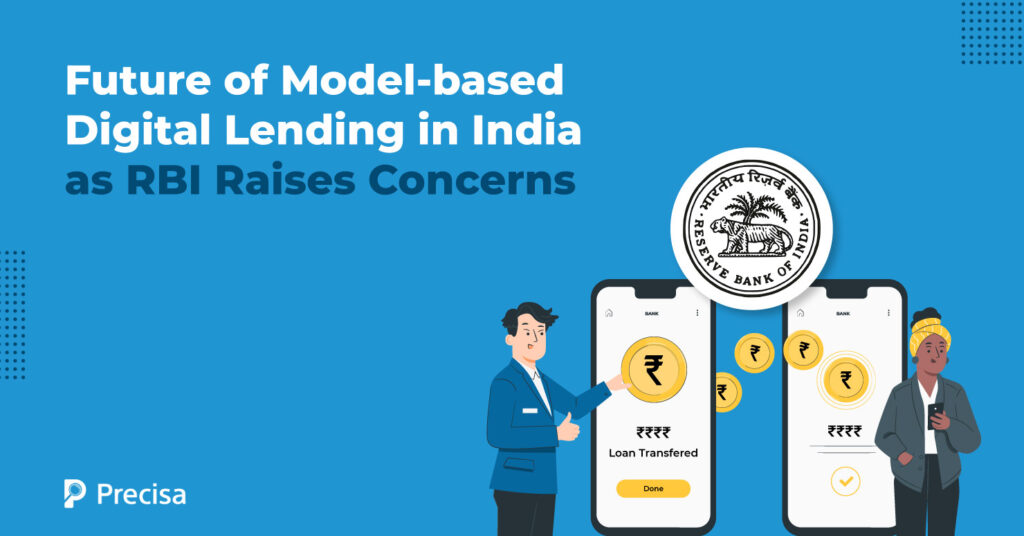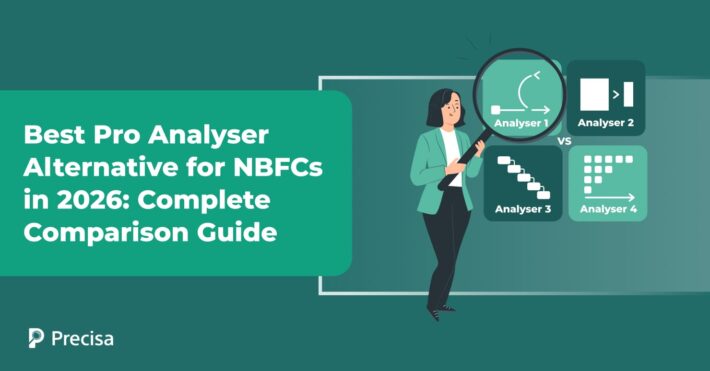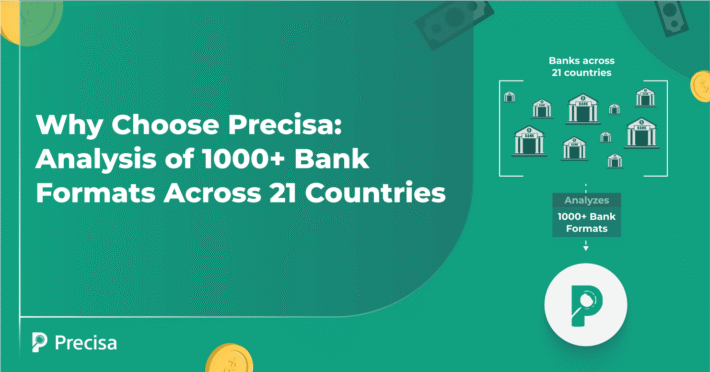Precisa: Safeguarding Against RBI’s Model-Based Lending Concerns

You do not need a microscope to observe how quickly things are changing in the Indian financial ecosystem. The rapid technology penetration, the country’s socioeconomic conditions, and government support have formed a formidable partnership to usher in a more digital and inclusive financial era.
It is no secret that this seismic shift from dated and conventional financial tools and methods to tech-powered innovation is transforming different areas within the Indian financial sector.
This article sheds a special spotlight on two of these areas: India’s evolving consumer lending market and the Reserve Bank of India’s (RBI) increasing apprehensions about algorithm-based lending.
Before we get to the crux of the matter, let’s first take a look at the country’s current digital lending landscape.
Current State of India’s NBFC and Consumer Lending Ecosystem
Driven by the rising number of non-banking finance companies (NBFCs) and increasing consumer inclination toward quick and accessible credit services, the consumer lending market in India is currently growing at an impressive CAGR of around 22% and poised to undergo a three-fold growth by the end of 2030.
The Indian population, especially the younger generation, have embraced digital lending tools and services with open arms and for good reasons. Some of the major reasons for the rising adoption include seamless access to credit, hassle-free KYC verification, flexible and convenient repayment options and more.
Today, there are more than 100 digital lending companies in India, including the ranks of Rupeek, Cashe, Early Salary, IndiaGold, and OneCard, to name a few.
The digital lending ecosystem is divided into four main segments, including gold loans, personal loans, retail cards, and buy-now-pay-later (BNPL).
Why Digital Lending May Outperform Traditional Lending
While we have stated why the adoption and demand for their services are growing exponentially, it is worth looking at why they are outperforming traditional banks.
The hype and the hoo-hah around artificial intelligence (AI) isn’t a myth; it is a reality that has engulfed different sectors, and finance is no exception. Fintechs and digital lenders are leveraging AI-driven algorithms to streamline their loan cycle management, automate loans, detect anomalies and patterns, predict a borrower’s likelihood of default, improve credit scoring, and detect fraud.
Apart from relying on AI-based algorithms to improve and automate lending, Fintechs are partnering with traditional financial institutions, marketplace aggregators, wallet companies, and similar entities to expand their market share and reach a wider audience.
While these partnerships provide fertile grounds for growth and innovation, the RBI is treading cautiously and isn’t jumping onto the AI-driven bandwagon.
RBI’s Cautious Stance on Model-based Lending and Why it Raises Concerns
This section explores why the RBI has raised concerns about model-based digital lending and how digital lenders are planning to navigate this tricky yet exciting and evolving landscape.
1. Grey Area Around New Innovative Products
BNPL and instant loan approvals are new and innovative products that have entered the financial ecosystem very recently. While the RBI is making strides toward governance and regulation of these solutions, there is a degree of uncertainty around what comes under its purview even today.
2. Questionable Decision-making During Loan Approvals
The RBI isn’t convinced with the decision-making exhibited by AI-powered lending models, especially while approving instant loans. As the RBI reinforces its commitment to building a stable and secure Fintech environment, the lack of transparency, governance, and overreliance on model-based lending is a major cause of concern.
3. Lack of Regulation for BNPL
As we all know, India is a young country with a median age of around 28 years. As a result, new financial products, including BNPL, have become increasingly popular in the country in recent years. To illustrate this growth, we must note that while there were around 7 million BNPL customers in India in 2021, that figure is expected to reach around 52 million by 2026.
However, the lack of regulations for BNPL services is another concern raised by the RBI, particularly regarding the high interest rates, misleading branding and marketing tactics used to lure customers into debt traps and more.
How is RBI Tackling These Challenges
The RBI has bifurcated digital lenders into three major categories, including those who have RBI’s permission to lend money digitally, companies that can lend by adhering to the statutory provisions and regulations, and lenders operating outside the statutory regulations.
The RBI set up a Working Group in 2021 that haw laid down legislative and institutional guidelines for digital lenders. This was primarily initiated to boost transparency, prevent unlawful lending, and safeguard the borrower’s interests.
These guidelines state that:
- There should be no interference in the transactions of the lender and the borrower. All loan repayments and disbursements should be carried out between the borrower’s bank account and the lender without the presence of a third party in the process.
- Any charges or amounts which need to be paid to the lender while intermediating credit will be borne by the regulating entity.
- All complaints filed by borrowers must be catered to within 30 days.
- Data collected by the lenders and loan service providers should have the borrower’s consent.
Parting Notes
The entry of innovative startups and Fintech companies comes as a breath of fresh air in the Indian financial sector. As consumers have become increasingly desperate for more advanced and user-friendly financial products and services, AI-powered algorithm models have garnered popularity in recent years.
However, the RBI isn’t turning a blind eye to the potential risks and has raised concerns, especially regarding the lack of transparency, vigilance, and overreliance on algorithms to approve loans.
The collaboration between traditional financial institutions, the RBI, and Fintech companies will dictate the course of the Indian financial landscape in the upcoming years. That said, it is safe to say that despite RBI’s caution, model-based lending holds a promising future as the advantages outweigh the pitfalls.
Precisa is committed to assisting its clients in analysing their transactions via self-submitted electronic statements and serving their customers efficiently with a tinge of innovation.
Schedule a demo today to learn more.




